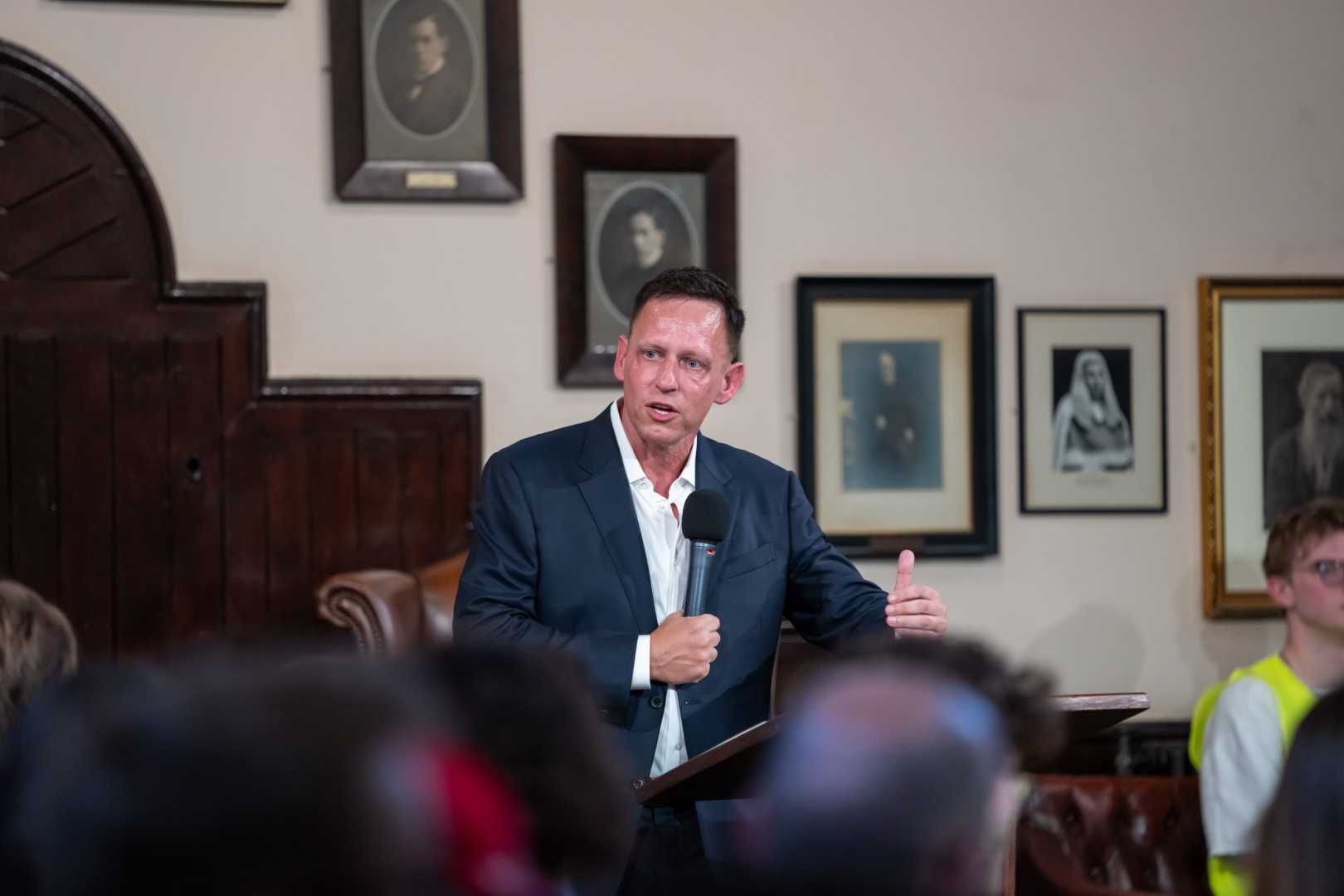Politics
Billionaire Peter Thiel Raises Concerns About Antichrist in Recent Lectures

San Francisco, CA — Billionaire investor Peter Thiel has sparked widespread attention with a series of lectures on the concept of the antichrist and the potential for Armageddon. Over the past month, Thiel delivered four discussions along the downtown waterfront, expressing his fears that the antichrist could already be among us, potentially represented by various global movements and organizations.
Thiel, who identifies as a “small-o orthodox Christian,” began his first lecture on September 15, stating, “A basic definition of the antichrist: some people think of it as a type of very bad person. Sometimes it’s used more generally as a spiritual descriptor of the forces of evil.” He elaborated on the idea that an evil king or tyrant could emerge during the end times, which he argues is a critical concern for society today.
Throughout his lectures, Thiel intertwines biblical references with modern-day events, asserting that international agencies, environmentalism, and restrictions on technology may expedite the arrival of such a figure. “What I worry about in that sort of situation is you don’t think too hard about the details of the peace and it becomes much more likely that you get an unjust peace,” he warned, providing context around his views.
Thiel’s discussions, held in an exclusive format where tickets sold out quickly, attracted a mix of supporters and protestors. On the day of his final lecture, demonstrators voiced their opposition outside, with signs criticizing Thiel’s association with companies like Palantir and ICE. A group of protestors conducted a theatrical performance dressed as “satanists,” further highlighting the polarizing responses to Thiel’s teachings.
Many attendees were instructed that the lectures were off the record, although some shared notes and recordings anonymously. Thiel, influential in conservative political circles and closely allied with former President Trump, has been vocal about his apprehensions regarding global governance and the implications of climate change, artificial intelligence, and other existential threats. “If we get rid of the ICC or other organizations that exist to bring, in theory, justice, how can we right crimes?” an attendee previously posed, reflecting the contentious debate surrounding Thiel’s perspectives.
In his lectures, Thiel suggested that fears surrounding technology lead to stagnation, making way for the antichrist to gain power through manipulation of public sentiment. He pointed to the potential negative impacts of regulatory bodies and expressed concern about the content and direction of contemporary scientific inquiry. “One world or not, in a sense is the same as the question antichrist or Armageddon,” Thiel noted, emphasizing his belief in the interconnectedness of these issues.
His overarching narrative painted technology as a double-edged sword—a tool that could both revolutionize and destroy society. He concluded his final lecture with a call for awareness, stating, “There’s a lot of different ways this stuff can go. But I keep thinking, if you had to put odds on it, aren’t the odds that we’re trending towards the fourth quadrant this time?”












